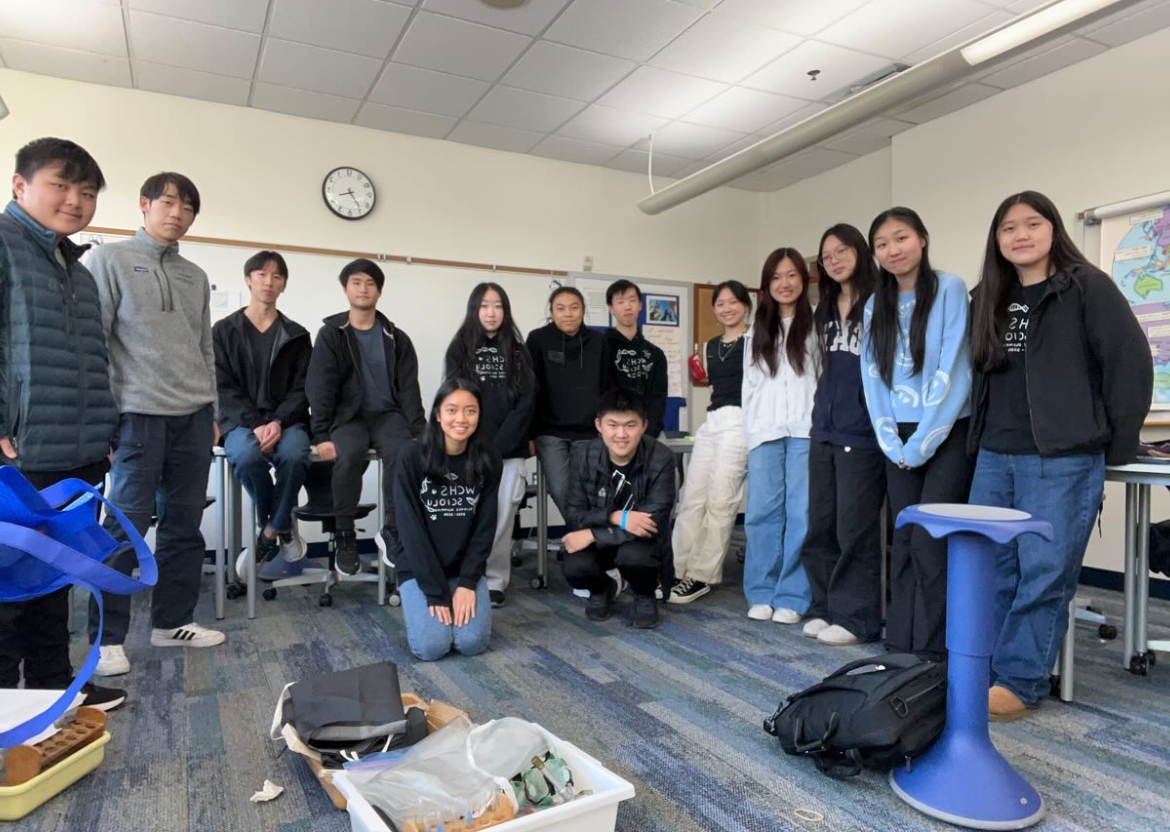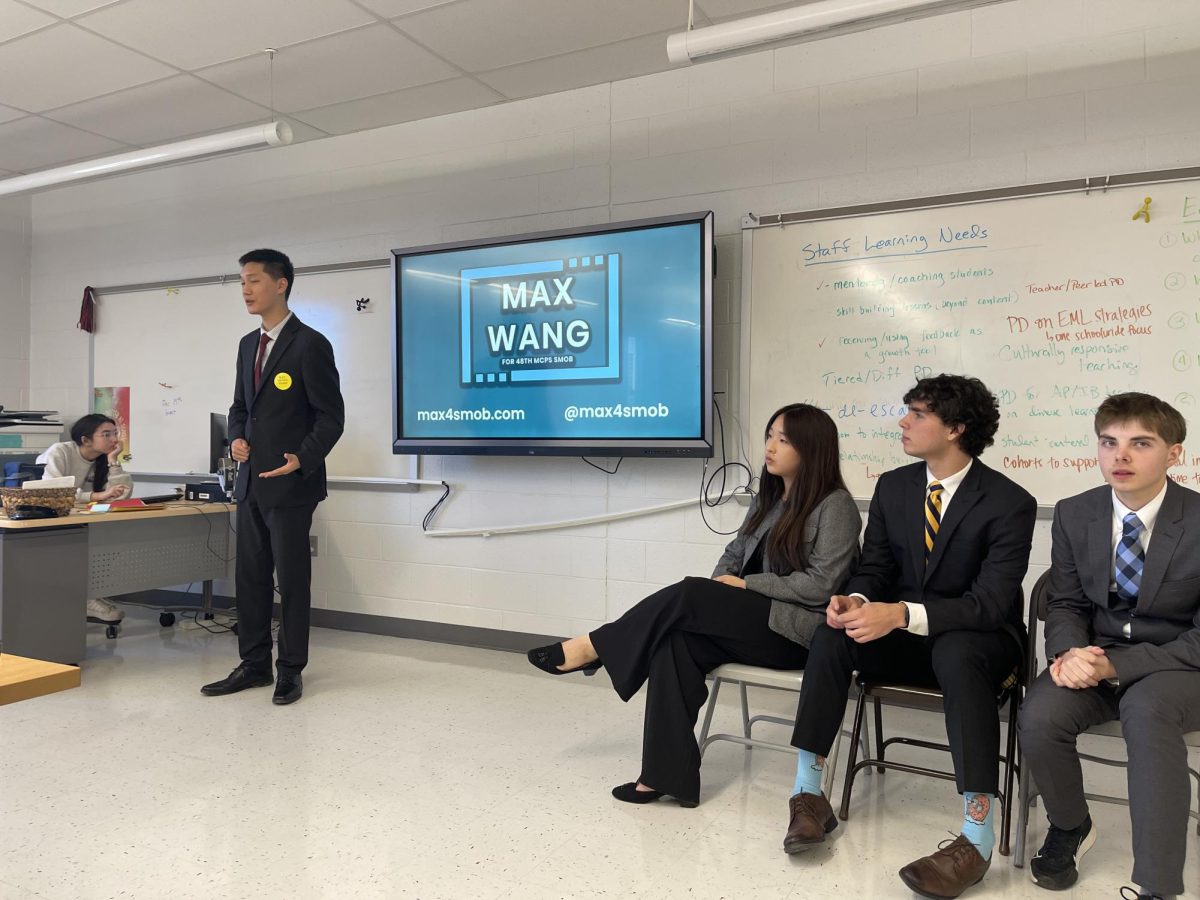Many students may wonder why their Asian American classmates continuously excel in school, score the highest test grades and attend prestigious universities. According to Amy Chua, a professor at Yale Law School and the author of a new controversial book, Battle Hymn of the Tiger Mother, the source of this ongoing strength comes from the Tiger mom, an uptight, strict, controlling, and traditionally Asian parent.
According to an excerpt from Chua’s book, Tiger moms do not allow their kids to have sleepovers, go on dates, participate on sports teams, watch TV or receive any grade less than an A.
Chua not only believes in restricting some social activity in her children, but also believes that parents should assume strength, not fragility, in their child. For example, she claims that if a child comes home with a B on a test, American parents will praise the child for their mediocre performance. However, Tiger moms will inform the child that the grade is simply not good enough. In Chua’s household, poor grades result in multiple practice tests until the material is mastered.
According to sophomore Sidney Hahm, her parents share many characteristics of the typical Tiger parent.
“If I have a test on Monday, my parents won’t let me go out on the weekends,” Hahm said. “I’m also not allowed to have sleepovers. My parents are pretty strict about it.”
Chua claims that Tiger moms protect their children by preparing them for the future and instilling inner confidence that no one can ever take away.
“I’m expected to get straight As in school,” Hahm said. “Everything I do in school is for college. My parents are [really] focused on my future.”
Although Sidney’s parents share some similarities with the Tiger mom, they do not agree with all of Chua’s parenting techniques.
“At times it is necessary to push your child, but not at every second,” Sidney’s father Edward Hahm said. “I can understand her value of grades, but the way she pushes her children is too much.”
Sidney’s mother agrees with her husband and believes that children can only be pushed to a certain limit.
“In our house, we have a little more freedom compared to her rules,” Sidney’s mother Terri Hahm said.
According to Robin Wechsler of the Georgetown University Pediatrics Department, this harsh parenting style is not the answer to ultimate success.
“I think a student would eventually believe that their parents only love them if they perform well in school,” Wechsler said. “This parenting style could cause anxiety or stress-related issues that could affect the student in the long run.”
According to Elinor D. Metz, a licensed clinical professional counselor who practices in Rockville and taught at CHS for 17 years, Tiger parenting may result in the opposite effects in children once they leave the home.
“I once worked with a young man who attended a local private school,” Metz said. “His mom met Chua’s criteria for a Tiger mom. His social life was restricted and his schoolwork constantly monitored. He did produce the desired 4.0 GPA in high school, which earned him acceptance at a top tier university. He failed and left after the first semester.”
Metz also worked with a child who had similar, yet slightly different family relations and successes.
“[The young woman] was deeply distressed because her mother told her she could no longer take piano lessons, which she loved, because they might interfere with her studies,” Metz said. “She also was a 4.0 honors student. This young woman was also accepted to a prestigious university, graduated and went on to become a doctor. All of this is to say that strict, authoritarian parenting can produce the desired results, but at great cost to the child.”
Even though many people critique this harsh approach, many students are motivated without a Tiger mom.
According to senior Amy Liu, the desire to do well in school comes from herself as much as it comes from her parents.
“Most Asian American parents I know share some similarities with the Tiger mom,” Liu said. “[However], many share an equal amount of similarities with [Western] American mothers.”
According to the 2010-2011 CHS Improvement Plan, 98 percent of Asian American students got a three or higher on one of their AP exam while 95 percent of White students received the same score.
Based on these statistics, one might guess that many students have Tiger moms. However, CHS’s undeniably competitive school environment may be enough to motivate students.
“Many students do not need extra pressure from their parents to do well in school,” Wechsler said. “Their own drive to succeed, competition with peers and expectations of teachers push the child to get good grades. Many students need parental support rather than added pressure.”
Tiger moms may be the latest talk among parents, but in an ambitious environment such as CHS, the students are the real tigers.
Categories:
Putting on the pressure, ‘Tiger moms’ are on the prowl
By By Zoe Forster
Staff Writer
March 1, 2011
Story continues below advertisement
0
More to Discover







